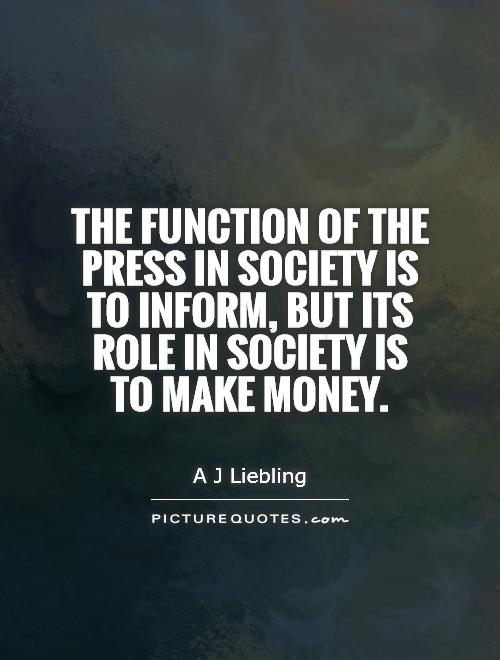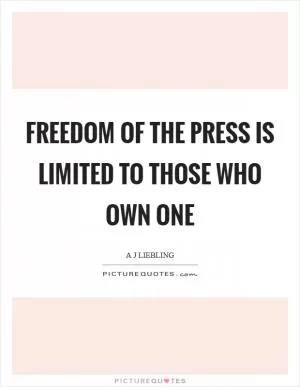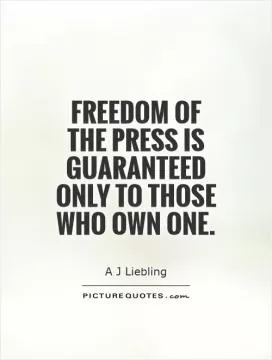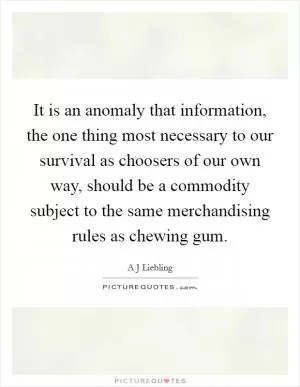The function of the press in society is to inform, but its role in society is to make money

The function of the press in society is to inform, but its role in society is to make money
A.J. Liebling, a prominent American journalist and writer, once famously said, "The function of the press in society is to inform, but its role in society is to make money." This statement encapsulates the complex relationship between the media and society, highlighting the dual nature of the press as both a source of information and a business entity.On one hand, the primary function of the press is to inform the public and serve as a watchdog for society. Journalists have a crucial role in providing accurate and timely information to the public, holding those in power accountable, and fostering an informed citizenry. In this sense, the press plays a vital role in upholding democracy and promoting transparency and accountability in society.
However, the reality is that the press is also a business, and like any other business, its primary goal is to make money. In order to survive and thrive in a competitive media landscape, news organizations must generate revenue through advertising, subscriptions, and other sources. This commercial imperative can sometimes conflict with the journalistic mission of informing the public, leading to sensationalism, bias, and the prioritization of profit over public interest.
A.J. Liebling's statement underscores the tension between the idealistic notion of the press as a public service and the commercial realities of the media industry. While journalists strive to fulfill their duty to inform the public and uphold democratic values, they are also constrained by the need to generate revenue and attract audiences. This tension can sometimes result in ethical dilemmas and compromises in journalistic integrity.












 Friendship Quotes
Friendship Quotes Love Quotes
Love Quotes Life Quotes
Life Quotes Funny Quotes
Funny Quotes Motivational Quotes
Motivational Quotes Inspirational Quotes
Inspirational Quotes